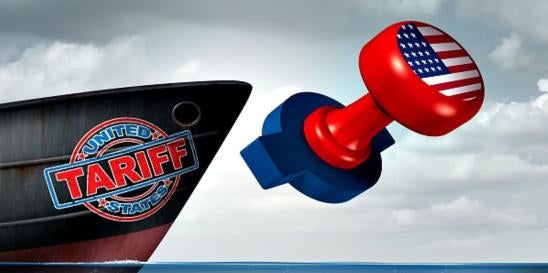The Section 301 tariffs on Chinese-made goods—at the time, known as the Trump Tariffs, although President Biden has embraced them as well—were put in place in 2018. Only recently, more than five years later, have enforcement efforts begun to show up publicly. And, as is often the case, whistleblowers are the tip of the enforcement spear. In particular, over the course of two weeks at the end of 2023, the U.S. Department of Justice (“DOJ”) announced settlements of three qui tam cases, brought under the False Claims Act, that alleged evasion of Section 301 tariffs. These are the first such settlements to be made public, but likely signal the beginning of a wave of settlements or litigation in the coming years.
Starting in July of 2018, and pursuant to Title III of the Trade Act of 1974 (Sections 301 through 310, 19 U.S.C. §§ 2411-2420), titled “Relief from Unfair Trade Practices,” and often collectively referred to as “Section 301,” the United States imposed additional tariffs on a wide range of products manufactured in China. The Section 301 tariffs were rolled out in tranches, but they fairly quickly covered a majority of all Chinese-made products imported into the United States. The Section 301 tariffs imposed an additional 25% customs duty on those products.
As is always the case when high tariffs are imposed on imported goods, the Section 301 tariffs were met with a mix of responses by importers. In some cases, importers simply paid the additional 25% duties. In some cases, the importers found new sources, outside of China, for the products they wished to import. And in many cases, the importers started cheating—evading the tariffs either by lying to Customs and Border Protection (“CBP”) about what was being imported, or engaging to transshipping schemes to make it appear that the products were actually made in some country other than China.
Evasion of customs duties violates the False Claims Act, a federal law that, among other things, outlaws the making of false statements to avoid payment of money owed to the government. Evasion of customs duties will almost always involve such false statements because when goods are imported into the United States, the importer must provide CBP with a completed form, called an Entry Summary (also known as a Form 7501), in which the importer provides information about the nature, quantity, value, and country-of-origin of the goods being imported. To avoid or reduce the payment of duties, the importer will almost always lie on the Entry Summary about one or more of those, thus exposing the importer to liability under the False Claims Act.
The False Claims Act has a qui tam provision, which means that a private person or company may bring a lawsuit in the name of the government against the importer that has evaded payment of duties. If the qui tam lawsuit is successful, most of the money goes to the government. But the person or company that brought the lawsuit typically referred to as a whistleblower or, more technically, as the “relator”—gets an award that is between 15% and 30% of the amount recovered for the government.
When a qui tam case is first filed, it is put “under seal” by the court, meaning that it is secret and not available to the public. The case stays under seal, often for multiple years, as DOJ investigates the claims made in the case. But once DOJ decides to pursue a case, the seal is lifted, and the case becomes public. Often, this happens almost simultaneously with the announcement of a settlement of the case.
That is what happened with three cases that became public in late 2023. The first announcement came on November 29, 2023, when the U.S. Attorney’s Office for the Northern District of Georgia announced a $1.9 million settlement in a case captioned United States ex rel Chinapacificarbide Inc. v. King Kong Tools, LLC. In that case, the whistleblower that had brought the qui tam lawsuit was a competitor company which alleged that King Kong Tools was manufacturing cutting tools in a factory in China, shipping them to Germany, and then importing them from Germany into the United States, claiming falsely that the tools were made in Germany. The whistleblowing company received an award of $286,861.
The second such announcement came on December 5, 2023, when the U.S. Attorney’s Office for the Northern District of Texas announced a $2.5 million settlement in a case captioned United States ex rel. Reznicek et al. v. Dallco Marketing, Inc. In that case, the whistleblowers were two individuals who alleged that the defendants evaded the Section 301 tariffs by underreporting the value of the products they were importing from China into the United States. The whistleblowers received an award of $500,000.
The third such announcement case on December 13, 2023, when the U.S. Attorney’s Office for the Eastern District of Texas announced a settlement of $798,334 in a case captioned United States ex rel. Edwards v. Homestar North America LLC. Like the Dallco Marketing case, the Homestar case was also brought by an individual who alleged that the importer had lied to the government about the value of the goods being imported from China into the United States, in order to avoid payment of Section 301 tariffs. The whistleblower received an award of $151,683.
Accordingly, over the course of just two weeks in late 2023, three Section 301 settlements were publicly announced in quick succession. And notably, all three were whistleblower qui tam cases. This demonstrates the key role that whistleblowers play in the enforcement of customs tariffs and duties. No doubt, many other such cases remain under seal, and will start to become public as DOJ concludes its investigations. And because the Section 301 tariffs remain in place to this day, additional qui tam cases will almost certainly continue to be brought by both individual whistleblowers and competing companies seeking to level the playing field. Accordingly, these three settlements are likely just the early signs of a wave of Section 301 cases that will crest in the coming years.




 i
i


